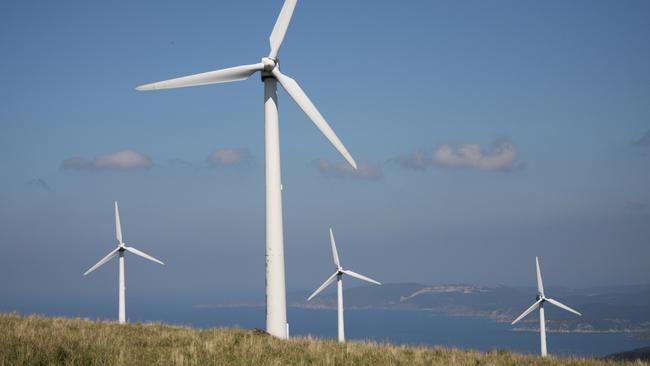
First, an important step has been taken to create low cost gas energy, at least in Victoria.
Second, while the politically correct class in our society argues that renewable energy targets are essential regardless of cost and reliability, a few politicians are now talking to ordinary people.
The politicians then discover that in the real world reliability and cost must be part of any low carbon solution.
On the government side Prime Minister Malcolm Turnbull and Energy Minister Josh Frydenberg clearly understand that if renewable energy targets keep pushing up the energy price and lower reliability — as they are currently doing--- it will swing the community to the carbon policies of Tony Abbott.
And I think Opposition leader Bill Shorten is just starting to understand he has a problem with theoretical energy targets that don’t take into account price and reliability. More of that later.
Gas is to be a vital part of our energy mix. While the current eastern states gas price and supply crisis was created by many different factors, without doubt the largest was the decision of the Baillieu/Napthine Victorian Coalition government to block Exxon’s planned development of the vast Victorian onshore gas reserves in Gippsland.
These gas reserves don’t require fracking and release water at EPA standards for agriculture.
The Andrews Victorian government embraced that crazy policy and a bewildered Exxon walked away. It was a tragedy for both the state of Victoria and the nation.
It took a farmer, Gregor McNaughton, (the son of a soldier settler farmer) who operates Burong farm near Seaspray in Gippsland to show the Victorian Opposition leader Matthew Guy of the total lunacy of the policy that his predecessors introduced. I don’t think Matthew Guy went to Gippsland to meet the McNaughtons as I suggested he do, but Guy read my commentary and acted. Well done.
If Guy wins office at next year’s Victorian election Guy will allow the development not only of the gas under the McNaughton’s and adjoining farms but that held by Lakes Oil, where Gina Rinehart is a shareholder.
There is work required on development and, as always, development drilling can disappoint. But top geologists tell us this abundant low-cost gas that is dissolved in deep underground water next to the current gas distribution complex is a bonanza. If they are right prices will fall and the farmers will be rewarded.
Matthew Guy wants the gas to be kept in Victoria in the same way that a former Victorian premier, the late Sir Henry Bolte, kept Bass Strait gas for Victoria for a long period. I think the foolishness of the state-only policy will cause it to evaporate.
Under a Coalition state government Gippsland is set to be transformed into a droughtproofed agricultural and energy region---rare in the world.
Unemployment will slump and the local farmers will be much richer and there is no danger to the underground aquifers. Fracking is not (repeat not) required. I set out the details online in The Australian on September 29 and in print in The Weekend Australian on September 30 under the heading Victoria’s amazing, unused gas reserve.
Now to the question of renewable energy targets. I want to use an analogy to show the absurdity of the current debate. Because BHP is somewhat confused about energy, I am going to use Olympic Dam for my analogy.
A predecessor to the current BHP CEO decided to set a production target to develop Olympic Dam. It was a brilliant target involving the production of vast quantities of copper and uranium — the equivalent of having a target of 100 per cent renewables based on current technology.
There was a small problem about that target. The cost of producing the material and the ability to transport it made the whole project a recipe for enormous loss unless copper and uranium prices were very high. Naturally that target was rejected by BHP and the current administration of BHP set their target much lower because that enables the copper and uranium to be produced at much lower cost. There is still technical work to do so the target may be further adjusted up or down. In renewable energy you may have as many targets as you want but they must be governed by costs and security of supply.
South Australia has taught us what can happen if you don’t take into account reliability and NSW and Victoria are paying much higher costs for power because the effect of renewables on existing systems is not being taken into account. And if we keep making the “Olympic Dam” analogy mistake and set targets without first looking at costs and reliability, the power prices will keep rising.
Currently the favourite game of the rogue energy states of NSW and Victoria is to pick a high target to win green votes. The state administrations think that all they have to do is plonk windmills or solar panels in various places and in theory they will produce low-cost power.
But that ignores the required investment in distribution and in back-up facilities for when there is no sun or wind.
Like “Olympic Dam”, when you have worked out the strategy of how to lower emissions at a reasonable cost with energy security then you set the target. Setting the target without knowing the full costs is just as crazy as banning gas in Gippsland. The people who pay the price of these silly political games are low-income voters and small business.
The rich ones will be OK. They will make themselves independent of the grid via solar panels and batteries (plus diesel generators) leaving the less well off the pay all the cost.
For the rich, politically-correct people and many politicians the problem is easily solved: “Let them eat cake”.






At last there are glimmers of hope on the energy price and supply front.